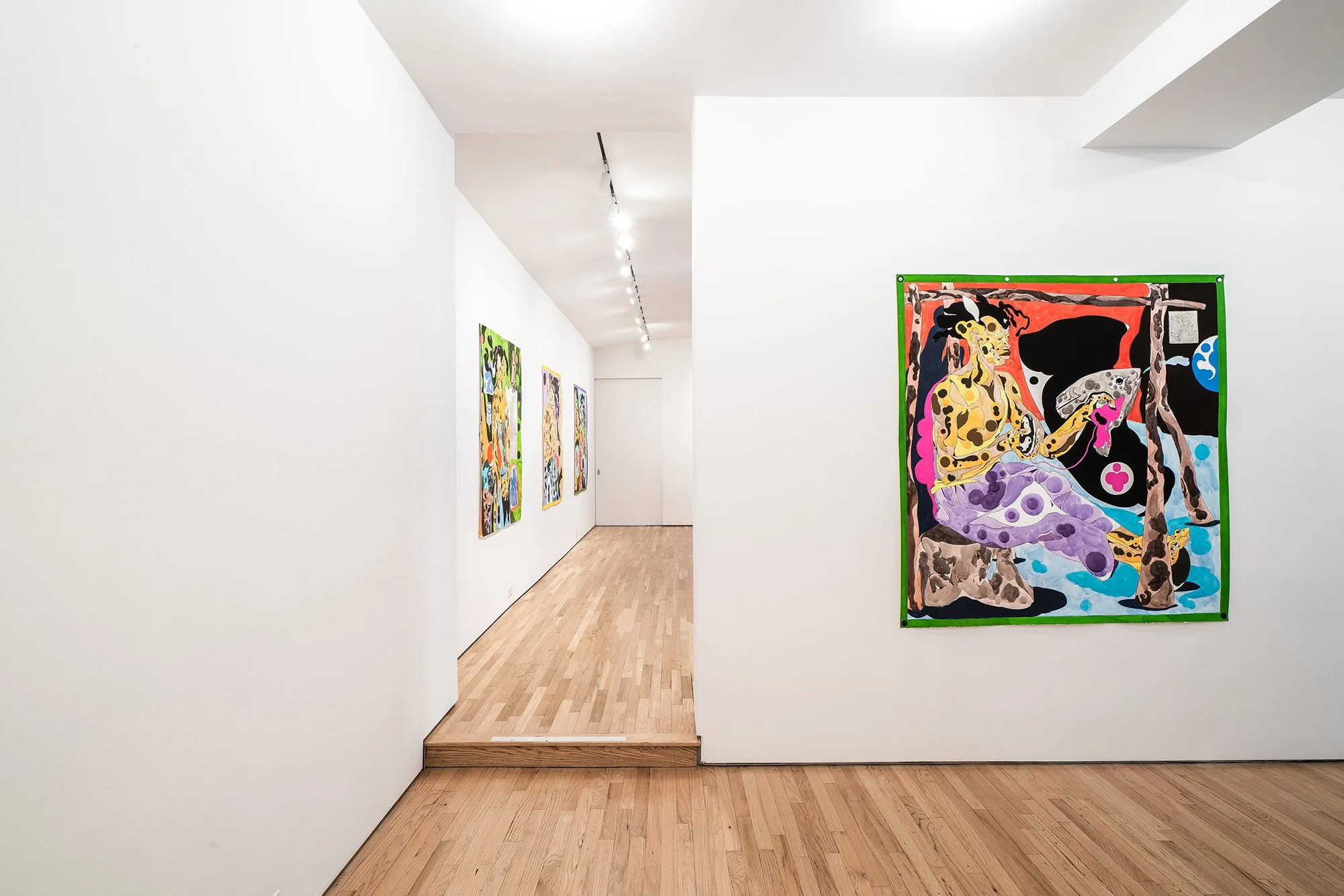Richard Ayodeji Ikhide
Richard Ayodeji Ikhide
Emiomo
June 2 – July 8, 2022
1 Rivington Street, New York
CANDICE MADEY is pleased to present Richard Ayodeji Ikhide’s first solo exhibition in New York, featuring a suite of large-scale watercolor, gouache, and collaged paintings on paper that explore universal cosmologies, the role of artist and artisan in mythmaking, and concepts of nonphysical or parallel realities.
While Ikhide’s work is firmly rooted in the cultural history of Nigeria and the Edo religion, his paintings celebrate the moments when specific spiritual traditions intersect with the universal. Figures in his work engage with archetypal forms such as water, vessels, tools, artifacts, and effigies, suggesting a narrative structure that extends across the seven paintings in the exhibition. Ikihide cites the influence of comic books, Japanese manga, virtual reality, and video games on his work–evident in the recurring characters that appear in delineated frames and storyboard-like sequences of action. The ambiguity of setting is intentional; Ikhide refers to the future past, representations of space and time that are both ancient and futuristic, where he explores the recurring themes of a shared humanity and the impulses of the collective unconscious.
Ikhide’s formal training includes textile design and screen-printing, two processes that are visible in his approach to painting. He begins with a sketch (which could double as a weaver’s cartoon or printer’s matrix) and subsequently layers watercolor and gouache in a methodical process he likens to screen printing. Watercolor allows space for fluid movement and texture, and doubly references the importance of the water spirits of the Dogon religion, a rich artistic tradition from West Africa that emphasizes the sacred and symbolic meaning of material culture. In addition to his own experiences weaving and studying fashion design, Ikhide has researched the unique technology of West African textiles, in which weavers have long employed sophisticated weaving machines that differ mechanically from looms he encountered as a student in London. He is keenly interested in the creative role artisans have played throughout human history in building utopic ideals and mythologies through image and ritual.
The title of the show, Emiomo, refers to a child emissary or messenger. The Emi and other recurring character types (mother goddess, medicine woman, child prophet, and shaman) fluidly interact, shapeshift, and appear to undergo metamorphoses. Here, presented large-scale in elaborately painted surfaces and vivid palettes, Ikhide offers a striking presentation of alternative worlds and infinite possibilities.
Richard Ayodeji Ikhide (b. 1991, Nigeria) received a BA in textile design at Central Saint Martins, University of the Arts, London (2014) and Postgraduate Diploma at The Royal Drawing School, London (2017). He has had solo exhibitions at Galerie Bernhard, Zurich (2022); Steve Turner Gallery (2021), Los Angeles; the Zabludowicz Collection, London (2019); and V.O. Curations, London (2021).
The gallery would like to extend a special thanks to Augusto Arbizo and Schwartzman&.
—

















